In our first work entitled Life and Times of Netaji Subhas: From Cuttack to Cambridge (1897-1921) we explored how Subhas Chandra Bose had constructed his philosophy of life. It was a difficult task, but we did it with scientific precision, within an artistic framework of five chapters. The present work is a bridge between the previous work on Subhas and the next work entitled Life and Times of Netaji Subhas: From Cambridge to Mahatma (1921-41). In the previous work, ‘chapter one’ elaborates the central philosophy of Vedanta, as interpreted by Vivekananda – the spiritual Guru of Subhas; ‘chapter two’ is an interpretation of Subhas’s family background and early schooling; ‘chapter three’ delves into what happened to him when he confronted Calcutta; ‘chapter four’ tells about his various experiences in England culminating in his resignation from the Indian Civil Service; and finally ‘chapter five’ is about Subhas’s philosophy of life that he constructed by exploring both Indian and Western thought. Subhas summed up his philosophy on ‘reality’ thus: "reality….is spirit, essence of which is love, gradually unfolding itself in an eternal play of conflicting forces and their solutions" (An Indian Pilgrim, p. 144). As Subhas’s primary impulse in life was philosophy and not politics, it is quite relevant that we should explore now how far his philosophy of life was influenced by the Indian Ethos (1900-1921) determined by Yogi Sri Aurobindo’s ‘terrorism’, poet Tagore’s ‘universalism’, and Mahatma Gandhi’s ‘experimental non-violence’. As such, in this present work, we have studied in great detail, Sri Aurobindo’s life in England for the period: 1879-1893 and how did he import ‘terrorism’ from Cambridge to India which motivated his activities during the period: 1900-10; and the fall-outs of his thought and activities on the intellectual milieu of India. Along with Yogi Sri Aurobindo’s ‘political philosophy of terrorism’ as a technique to fight against British imperialism we have examined the influence of Tagore’s universalism, especially manifest in his poem Gitanjali (which made him Nobel Laureate in literature in 1913) on the intelligentsia in the West. Besides Sri Aurobindo’s ‘terrorism’ and Rabindranath Tagore’s ‘universalism’ Mahatma Gandhi’s ‘experimental non-violence’ also shaped the stance and tone of Indians’ struggle for independence which was actually motivated by Vedanta, the perennial philosophy of humankind, as propounded by Swami Vivekananda according to the need of the ‘time’, towards the closing years of the nineteenth century. So, our principal task is to relate the thought and activities of Netaji Subhas with the forces of time, till India attained her independence. Hence, in this ambitious venture, our final work will be Life and Times of Netaji Subhas (1941-47): From Mahatma to Military. Our guide is: Krishna’s dialogue with Arjuna in the battlefield of Kurukshetra as codified in the Bhagavadgita. After all, ‘life’ was, is, and will always be a battlefield between two opposite forces through which the absolute Brahman expresses itself. This work is also indispensable for those who are interested in knowing the ideological basis of India’s struggle for independence, and how Subhas discovered the gaps in the ideals cherished by Sri Aurobindo, Tagore, and Gandhi. Through his analytical intellect, he worked out his ‘action-plan’ which ultimately forced the British to quit India, but at the cost of the greatest human tragedy, owing to the wrong policy of Mahatma Gandhi towards appeasement of the minority communities.
Netaji Subhas Confronted the Indian Ethos (1900-1921)
$22.50
$25.00
In stock
Free & Quick Delivery Worldwide
All orders amounting to US$ 50 or more qualify for Free Delivery Worldwide. For orders less than US$ 50, we offer Standard Delivery at $14 per book.
ABOUT THE AUTHOR Adwaita P. Ganguly
Born in West Bengal, Dr. Adwaita P. Ganguly was educated at the University of Ranchi, Bihar, India; and at Birkbeck College (University of London). He received his Ph.D. from the University of London for his research on E.M. Forester’s A Passage to India (1924)- a detailed study of his treatment of India’s landscape, history, social anthropology, religion, philosophy, music and art’. The thesis was published by Mtilal Banarsidass (Delhi), in 1990, under the title India: Mystic, Complex and Real. His recent works include Vedanta Philosophy for the Unity of Mankind (Vikas, New Delhi, 1995); and Yuga Avatar Sri Sri Ma Anandamayee and Universal Religion (Vedantic Research Publications, Dehra Dun, 1996). Dr. Ganguly’s quite significant lectures at public meetings and International Seminars include: ‘Vedanta and the West’, at the Festival of Indian Culture, organized by the Swaminarayan movement in London in 1984; ‘E.M. Forester’s Vision of India’ at the Bharatiya Vidya Bhavan, London, in 1990; ‘From the Rgveda to Sri Aurobindo-the continuity of Indian Thought’ at the First Centenary Celebration of the Parliament of the World’s Religions, held at Chicago, in September, 1993; ‘Vedantic Philosophy for a new Global Order’ at the Theosophical Society in London in April 1995; ‘Explosion of the Myth of the Aryan Invasion of India’ at the London Branch of the Bharat Sevashram Sangha in July 1995; ‘Sri Sri Ma Anandamayee and Universal Religion’ at the Centenary Celebration of Sri Ma, held at Ranchi Durgabari, Ranchi, in November 1995; ‘Hindu Dharma in the Future World of East and West’ at the Convocation of Wisdom Schools for the 21st Century organized by the Sancta Seminary. Oklahoma, USA, at the Theosophical Society in London, in May 1997. Dr. Ganguly is a delegate to the Parliament of the World’s Religions session at Cape Town (RSA) in December 1999.
reviews
0 in total
Review by Anonymous
Be the first to review “Netaji Subhas Confronted the Indian Ethos (1900-1921)” Cancel reply
You must be logged in to post a review.
Bibliographic information
Title
Netaji Subhas Confronted the Indian Ethos (1900-1921)
Author
Edition
1st ed.
Publisher
ISBN
8187530049
Length
xviii+224p., Photographs.
Subjects
more by Adwaita P. Ganguly see more
Life and Times of Netaji Subhas: From Cuttack to Cambridge (1897-1921)
Netaji Subhas Chandra Bose ...
$19.80
$22.00
similar bookssee more
Kashmir and It’s People: Studies in the Evolution of Kashmiri Society
This book traces the journey ...
$47.50
$50.00
Chattogram Bidroher Nayak: Surya Sen
$12.60
$14.00

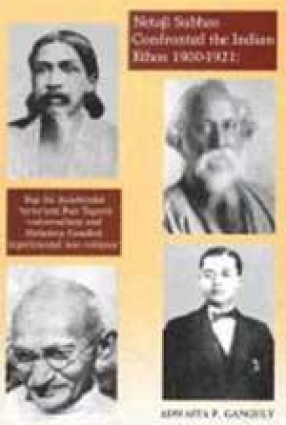
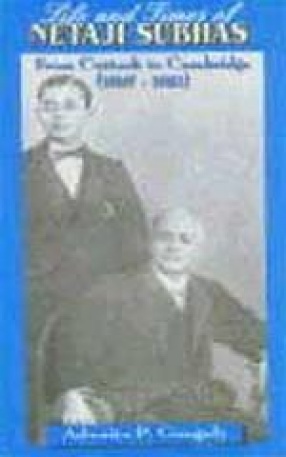
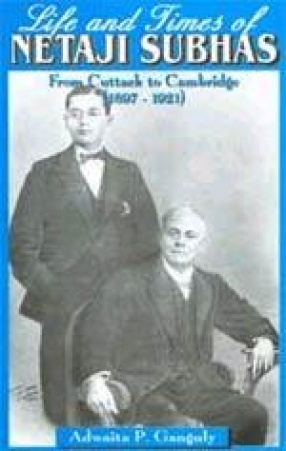
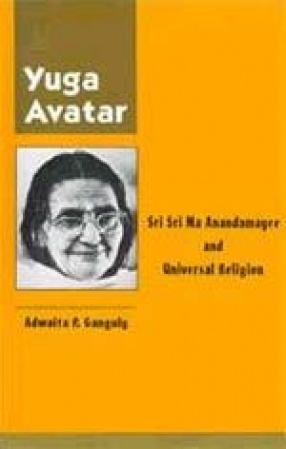
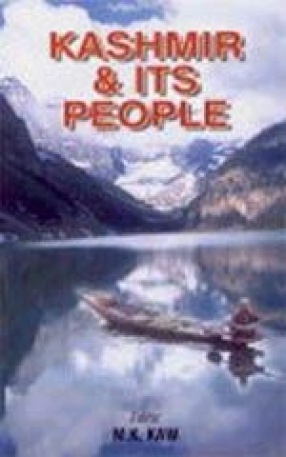

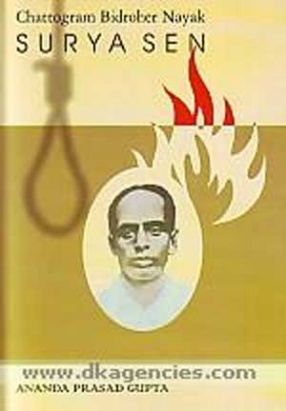
There are no reviews yet.